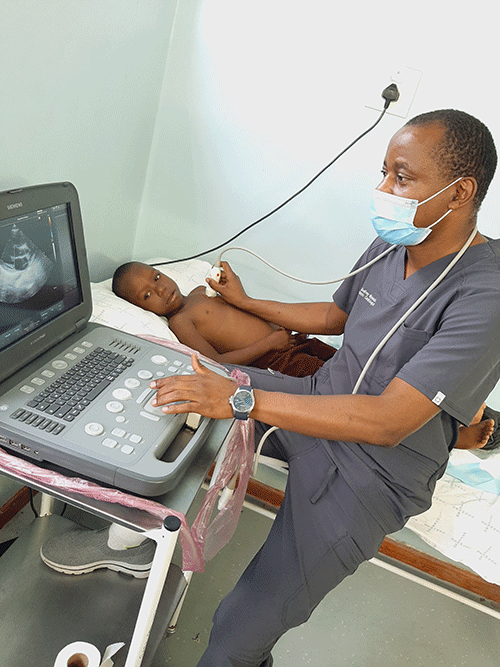The heart, as the generator of the body, is one of the most important organs because of its key function that has a massive impact when it malfunctions.
Without the power supply, nothing else works.
Fransa Shaakumeni, father of a baby girl who was diagnosed with Congenital Heart Disease (CHD) at the age of two, said initially he was shocked at the news that his daughter had the disease.
He said this at the Congenital Heart Defects’ awareness week, which was held at the Ongwediva MediPark. The information-sharing session was hosted under the theme ‘Early Detection and Treatment of Congenital Heart Disease’. “I was petrified that my daughter was diagnosed with that condition at the tender age of two, and I thought she would not survive,” said Shaakumeni, whose daughter is turning three this year.
Also known as congenital heart anomaly, CHD is the abnormality in the heart that presents at birth. The defect could be in the heart walls, valves or the blood vessels.
He added: “The lack of understanding put me in a panic, and I started seeking answers on Google on how the disease works and whether it is curable.”
Shaakumeni urged parents not to panic but to do research, consult experts and follow the instructions that are being given by doctors. “Always take your babies for check-ups to prevent complications,” he stated.
The now informed father said taking kids to check-ups is important if issues can be detected early enough, as treatments will be administered with immediate effect. Paediatric cardiologist at the Ongwediva MediPark hospital, Dr Godfrey Mbawala, said CHD is the defects in the heart that occur during the first eight weeks of foetal development.
“This ranges from simple holes in the heart, narrowed heart valves, to complex heart defects with the swapped great vessel,” he narrated.
Mbawala said there are no known causes of CHD, but there are risk factors that when present increase the probability of the occurrence of the disease.
“Advanced maternal age, maternal illness like diabetes mellitus occurring during pregnancy, and alcohol consumption during pregnancy are some of the risk factors. There is also an increased occurrence of CHD among children born with Down’s syndrome,” shared Mbawala. Symptoms associated with CHD vary depending on the type of congenital heart disease it is, like difficulty in breathing, interrupted breastfeeding, excessive sweating during feeds, bluish colouration of the mouth and extremities, growth faltering and others.
The treatment of CHD may be medical, intervention by use of catheter-based or open-heart surgery. According to the latest information obtained by Vital Signs, those treatments are available in Namibia.
However, there is a long waiting list as only the Windhoek Central Hospital offers open-heart surgery to children while the Ongwediva MediPark offers intervention services, which are also limited to private patients as the majority of the community cannot afford the treatment.
Furthermore, The Namibian Children’s Heart Foundation, established in 2011 by the late Harold Pupkewitz, has been on board for this cause as it funds and supports a team of doctors and scientists researching heart disease in Namibian children.
The objectives of the foundation are to support research into heart disease in children in Namibia, identify young medical scientists, and build research capacity and create an enabling environment for scientific enquiry in paediatric cardiac medicine.
The Harold and Ethel Pupkewitz Heart Foundation made an invaluable contribution to heart disease research in children, and to research capacity development in Namibia.


